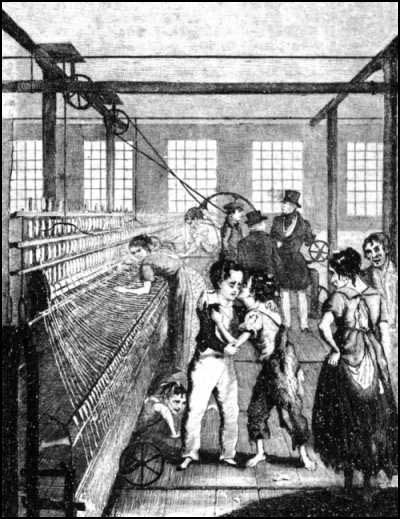
Dutch Historical Age of Majority versus Age of Maturity and Becoming an Adult
Some of these terms can be confusing and are often used to mean the same. But there are or can be some slight differences.
- Age of Majority = The age you are legally an adult and your own boss (yes, tell your wife/husband).
- Age of Maturity = The age you are independent, strong or big enough like an adult. Sometimes also in limited legal aspects.
- Adult = in legal terms someone passed the age of majority, but this doesn’t always mean they act mature.
- Minor / Child = in legal terms someone before the age of majority, but they could again act more mature than some adults.
Minor / Child
Now, here we can really get confused. We become a parent, getting a child. The child and parent become older. At one point the child is no longer a child but will always be the child of the parent. Got it? Example, a parent has 5 children, they are all the parent’s children but three are minors and two are adults.
When we talk about legal subjects like the nationality law, let’s be clear and say things like “my adult child” or “my minor child”. Just saying child will create questions. To make things really clear and be helpful tell us when the child was born, “my child, born XX Oct 1970”.
In Dutch a minor is a “minderjarige”.
In Dutch a child is a “kind”.
Adult
Being an adult is a term which often means much more than the age of majority. Being an adult in society relates to being physically and mentally strong and mature enough to live an independent life. Legally, an adult is someone who is independent and passed an age boundary. Note that there are (less abled) dependent adults who in law can be treated differently.
In Dutch a legal adult is a “meerderjarige”.
In Dutch an adult is a “volwassene”, we do often mean a ‘legal’ adult.
The Age of Majority in Dutch History
| Period | Age of Maturity/Majority |
| Germanic Law before the Middle Ages | 12 – 14 years |
| As of the Middle Ages | 25 (regional differences) |
| 1804/1811 – 1838 (Napoleonic era) | 21 |
| 1838 – 1901 | 23 |
| 1901 – 1988 | 21 |
| 01 Jan 1985 – to date | 18 or earlier marriage. With reference to Nationality law |
| 01 Jan 1988 – to date | 18 with reference to Civil law |
The age of majority is historically a clear legal boundary linked to someone’s age and thus his/her birthday. Or is it?
Currently by law the Dutch age of majority is 18. However current Dutch criminal law knows a transitional period from 16 to 23 years of age. In which case the culprit is judged on personality (maturity as a child or young adult) and the kind of offence resulting in a possible judgement as if a minor, adolescent or an adult. This is an example of where the legal age is influenced by being perceived as a child or a responsible adult. Marriage is/was another.
Historical, Regional and Gender Differences
This general age boundary relates mostly to property laws. These days, as of the age of 18 one can, without parental permission, obtain and possess property. From buying your own mobile phone to land or a house, you can do it all and the decision is only yours. Of course, the responsibilities as well. You can also receive and gift, as control of the ownership of the property is yours.
However, for other important legal matters, such as marriage, wills, voting, employment, criminally responsibility, there used to be different age boundaries. Some still in place today. And sometimes certain legal actions influenced the age of majority. For example, if you did get your parents’ permission to marry, you would become a legal adult. Of course, men would get some independence with that as well, while women often became dependent on their husband. If one became a young/teenage widow(er) then one could quickly remarry as an adult, not requiring your parents permission. However, as of 1838 you did need to go back to start and ask your parents for permission to remarry if you were not yet 30 years of age.
Other limited methods of becoming an adult was through “handlichting”, “venia aetatis”, or “uit den brode doen”. Parents or a judge giving the minor child a (limited) status of adulthood. Often relating to work and/or business.
12 – 14 years age of majority – Germanic Law before the Middle Ages
Historically Dutch local and national laws were often regionally different, and different again due to circumstances or gender. However, being an adult strong enough to work and contribute, or being an adult with self determination rights or a voice could still be different. Children were under the “mund” (guardianship) of the family head. A boy remained in his father’s mund until he was emancipated on attaining physical maturity. A girl remained in the mund until she married, at which point she passed into the “mund” of her husband(‘s family).
25 years age of majority – Middle Agearians loving the Romans
As of the middle ages when Christianity got more of a foothold in the Germanic countries like present day Netherlands we start to see changes. In the Middle Ages the Dutch got themselves re-acquainted with Roman law and aspects of it were introduced into the Dutch societies. The age of majority in family law and such judicial matters rose to 25 years of age. This was centuries earlier also the highest age of majority for the Romans. Also Canon Law (regulations made by ecclesiastical authority, Church leadership) incorporated these old Roman rules and thus had a big influence on Dutch family and inheritance law.
23 years age of majority – Napoleonic forced Love.
With the French (1804) and national laws (1811) introduced by Napoleon, we see a change of the age of majority from 25 to 21. Regional differences still somewhat persisted this harmonisation.

23 years age of majority – Civil Code of 1838
As of 1838 with the introduction of the Civil Code the Dutch law stated that the age of majority was 23.
Up to about a century ago it was usual that from the age of 7 a child would start to contribute to the household. From helping out in the house to labour and farming. Between 14 and 18 one would become a full fledged capable labourer (in most professions). Old tax law was happy to recognise that as well through “capitation” or in Dutch “hoofdgeld”.
Other differences are that one could leave a will (testament) as of the age of 16, even though before the age of 23 one could not control own property independently.
21 years age of majority – 20th Century Dutch Law
As of 1901 the Dutch law stated that the age of majority was 21.
18 years age of majority Nationality law
As of 01 January 1985 the new Dutch nationality law stated that the age of majority was 18. Or an earlier date in the case of marriage. Meaning, any minor marrying would become for the purpose of Nationality law legally an adult (see below).
When we look at the nationality law changes of 1985 and 2003 this date and age of majority can for some dual nationals become an important day affecting their Dutch nationality status.
18 years age of majority Civil law
As of 01 January 1988 the Dutch law followed suit and stated that for all Civil law purposes the age of maturity was 18. On that 1st of January about 750,000 Dutch children became legally adults and for most it wasn’t even their birthday.
Adulthood through marriage
In the Netherlands the (French) Napoleonic Code set a required marital minimum age of 18 years for men and 15 for women. If you were younger you were not legally allowed to be married. With the creation of the Dutch book of civil law in 1838 the marital age for women was raised to 16. Marital age didn’t mean full adulthood or age of majority, parent’s permission was still often required. However, once married the couple were regarded as mature and had legally reached (early) adulthood, and age of majority for nationality law and some other purposes. As of 1985 the marital age was changed to 18 for both sexes. Also the new nationality law of 1985 regarded persons of 18 years as adults. The note in the 1985 nationality law that any earlier marriage would be regarded as legal age of majority would therefore mostly be a transitional consideration, or relate to foreign (recognised) marriages.

